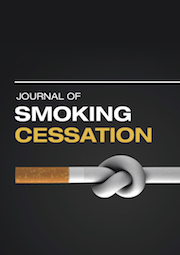Article contents
Reasons for Nondaily Smoking among Young Adults: Scale Development and Validation
Published online by Cambridge University Press: 04 April 2013
Abstract
Introduction: Given the increased rates of nondaily smoking and the lack of validated measures to assess factors related to nondaily smoking, we aimed to develop a measure of reasons for nondaily smoking among young adults. Specifically, we developed a scale assessing reasons or triggers for nondaily smoking and examined its reliability, factor structure, and concurrent validity. Methods: We administered an online survey to 2,000 students at six colleges in the Southeastern US, and 718 (35.9%) returned a completed survey. The current analyses focused on the 95 participants who reported nondaily smoking (i.e., smoking between 1 and 29 days of the past 30 days). In addition to the items created for scale development, measures included socio-demographics, other measures of motivation and confidence/self-efficacy, past smoking/quitting history, readiness to quit, and other psychosocial factors related to smoking. Results: The 19-item Reasons for Nondaily Smoking Scale (RNS) demonstrated an average score of 45.36 (SD = 15.55) and internal consistency (Cronbach's alpha of 0.79). Factor analysis of the items extracted four factors which accounted for 57.4% of score variance: Social influences; Enhancing buzzes and positive affect; Negative affect regulation; and Lack of concern of addiction. Concurrent and discriminant validity were documented. Conclusions: Developing validated measures designed to assess factors associated with nondaily smoking will enhance our ability to address this growing public health concern. The development and validation of the RNS for young adults may be critical in informing our intervention strategies and potentially for effecting or predicting cessation among young adult nondaily smokers.
- Type
- Articles
- Information
- Copyright
- Copyright © The Author(s), published by Cambridge University Press on behalf of Australian Academic Press Pty Ltd 2013
References
- 6
- Cited by


